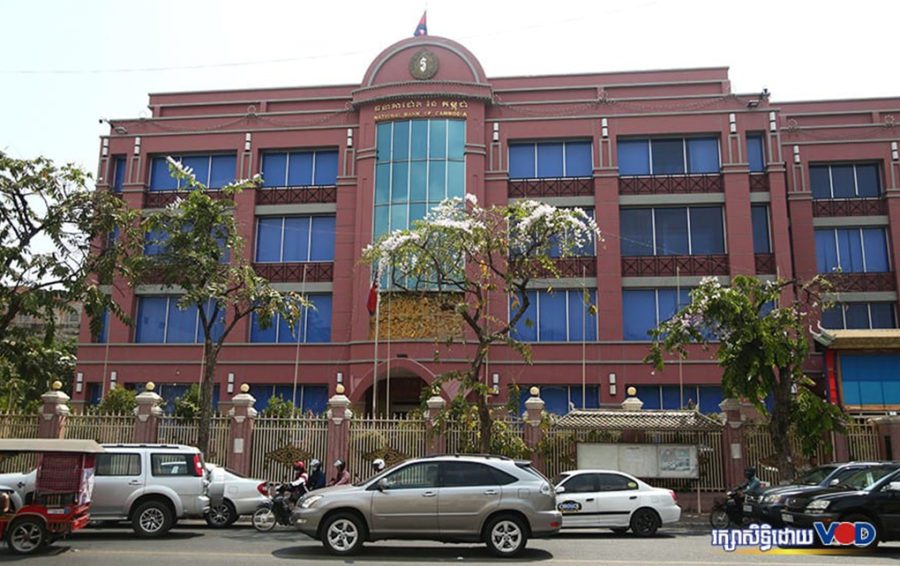When popular comedian and supplement seller Sreng Sokanda stood before a camera in a black dress with white polka dots on Wednesday, she made an impassioned speech about being half a million dollars in debt, the turmoil it had put her family through, and how she was unable to pay her creditors, often putting her hands together begging for relief.
The scene was unusual for a businessperson in Cambodia — a public admission of financial distress when most would try to scrounge together enough money from friends and family to repay their debts before resorting to an admission of indebtedness. Any opportunity to avoid a “loss of face” in Cambodian society is at a premium.
But Sokanda, who also goes by Srey Knhong, went further and — in-between soliciting funds from the public — announced that she would file for bankruptcy.
Bankruptcy is a seldom used legal provision in Cambodia, even though it has been part of regulations since the passage of the 2007 Law on Insolvency. This issue is most likely seen in the media in the context of garment factories going bankrupt and selling assets to pay creditors and employees.
The Insolvency Law allows for legal entities, partnerships and individual businesspeople to file for bankruptcy, with the exception of financial and insurance institutions and securities-listed companies, which have separate regulations for insolvency.
These proceedings have to be approved by a court, and in Cambodia’s case, the lack of commercial courts means a provincial or municipal court of first instance initiates proceedings when a debtor is unable to meet “valid and mature obligations” to repay an amount of at least 5 million riel, or about $1,250.
Ly Tayseng, managing partner of HBS Law, said the law could apply to both individuals and legal entities, but in the context of business transactions and assets.
“I think the Srey Knhong case might not be qualified for opening insolvency proceedings, because it appears that most of her debts are of personal nature rather than resulting from business activities/transactions,” Tayseng said, adding that individual insolvency cases were already rare.
“There have been some attempts to file insolvency applications by businessmen. But I am not aware of successful outcomes,” Tayseng said.
Advantages of filing for bankruptcy included protection from further actions by creditors, and not having to deal with claims of creditors individually as the settlement of debts would be handled by a court-appointed administrator.
But the person or entity would be handing over control. “For disadvantages — in the insolvency proceeding, the debtor loses management and control over his or her assets and management of business,” Tayseng said.
Veteran lawyer Sok Sam Oeun added that it was the country’s courts that take the lead in deciding how a debtor’s financial obligations can be met.
“If we make an announcement of bankruptcy, the court might keep the house sometimes, keep the car that is used in the business like a taxi and so on but not a car that is for personal activities,” Sam Oeun said.
According to data from the Zico Law group, run by prominent lawyer Sok Siphanna, the time to resolve an insolvency in Cambodia in 2014 was upwards of seven years, and the recovery rate was just 8.2 cents on the dollar.
Sam Oeun said it was rare that individuals would file for bankruptcy, as was the case with Sokanda’s announcement, because there was little awareness about this legal procedure.
“Previously, our Cambodian people, no matter how broke they are, they are willing to sell everything. … There is no one who makes announcements through Facebook and asks for help. In Cambodia, they are willing to go and beg,” he said.
Sek Sophorn, another Cambodian lawyer, said his understanding was that private matters or debt were not addressed under bankruptcy proceedings, and informal businesses or unregistered establishments could not make use of the law.
But, for example, a firm like Singapore-listed Kris Energy, which abandoned oil extraction in Cambodia due to overwhelming debts, can file for bankruptcy and attempt to pay off its creditors, he said.
According to the same Zico Law document, an insolvency claim in Singapore is resolved in less than a year and has a recovery rate of 89.7 cents on the dollar.
“If there is no proper registration with the Commerce Ministry and no duty to pay tax and no registration for the capital based on the law, the bankruptcy law will not apply to private and informal matters,” Sophorn said.
Financial expert Nget Chou said Sokanda’s Facebook live-stream was probably the first time he had heard an individual announce bankruptcy in Cambodia. He said individuals acquiring loans from institutions had an obligation to pay back the loan and could not file for bankruptcy.
“As we know, if everyone is eligible to do so, then those who receive loans from banks and microfinance institutions will all do this. So, they can’t do this,” Chou said.
Chou said that in such cases it was up to the debtor to broker a solution, ask creditors for more time to repay, or use local officials to find a compromise, with going to court being a last resort.
Using the example of omnipresent microloans, which have been criticized by rights groups for causing overindebtedness among Cambodians, Chou said there are more than 2 million debtor families, and it would be unruly if 1 or 2 percent of them did not repay and tried to use Facebook and other social media to resolve their debt, he said.
“If we don’t use the existing administrative mechanism of the state, and we turn to other mechanisms, like social networks, it could cause chaos in society,” he said. “It is not right to use social networks to solve [the problem].”
Additional reporting by Michael Dickison













